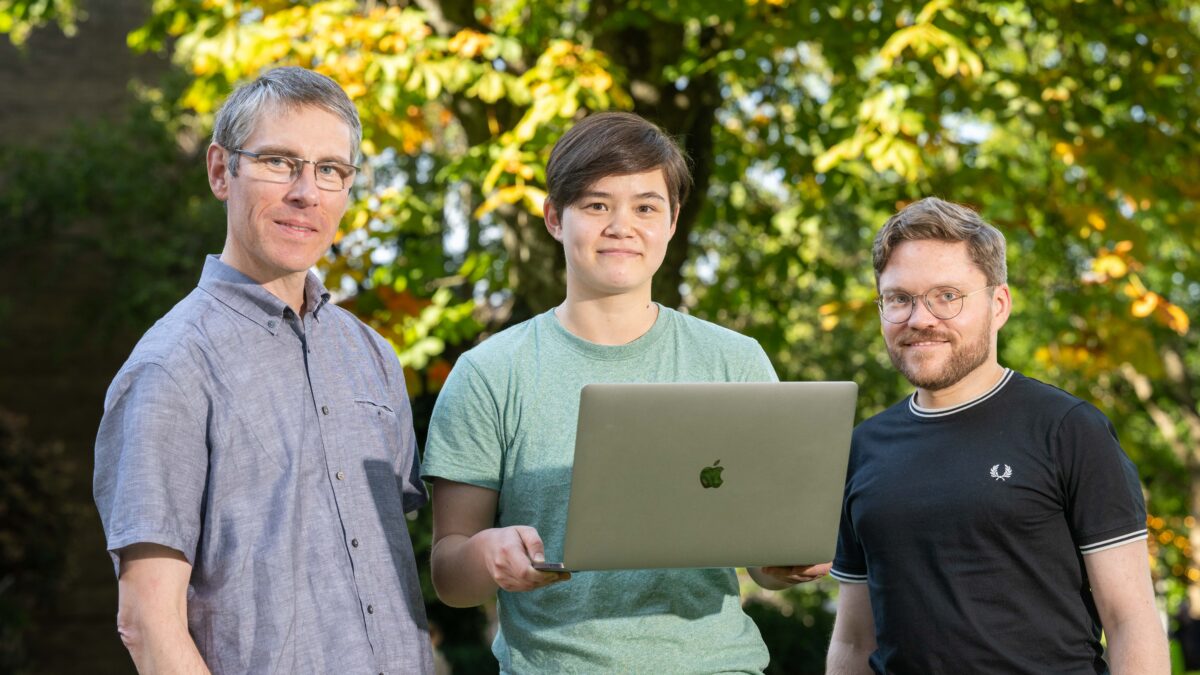Computer science undergraduates at the University of Glasgow are to be taught about the environmental impacts of their chosen field of study in a ‘UK first’.
Students at the university will be regularly taught and assessed about sustainability in the computing industry – given the sector’s increasing consumption of energy resources.
Researchers estimate that, by 2040, emissions from computing alone could consume more than half of the world’s carbon budget available to limit global heating to 1.5°C above pre-industrial levels.
The energy demands of powering computers and datacentres make up around 70 per cent of the computing sector’s carbon emissions. Around a quarter of further emissions come from the production of computing hardware, which is often replaced before it reaches the end of its useful lifespan.
Abandoned devices like computers and smartphones also contain complex layers of metals, plastics and chemicals, which make them difficult and expensive to recycle, compounding their ecological impact.
The university’s updated curriculum aims to help future generations of computing scientists play leading roles in reducing the ecological harms of the digital world.
It will focus on understanding and assessing the problem of emissions from computing at a global scale, with a focus on the specific systems that students design and develop.
Professor Wim Vanderbauwhede created and leads the School of Computing Science’s Low Carbon and Sustainable Computing Group. He and Dr Lauritz Thamsen, the School’s Sustainability Subject Adviser, led the push to integrate environmental considerations into the School’s undergraduate curriculum.
Professor Vanderbauwhede said: “Computing has transformed society in my lifetime, enabling huge advances acrossscience and medicine and providing us with new ways to instantly communicate, collaborate and share ideas.
“However, the many advantages we enjoy today as a result have come at the cost of a major contribution to the carbon emissions causing the climate crisis. The ever-increasing complexity of integrated circuits, and the reduction of repairability in favour of planned obsolescence, has outpaced our ability to use every generation of computers in the most energy-efficient ways.
“Rethinking our approach to education is one way to help ensure that the next generation of computing scientists, who will be increasingly greatly impacted by the effects of the climate crisis, can be equipped with tools to help them tackle it.”
Dr Thamsen said: “Quickly and thoroughly decarbonising all sectors, including computing, is vitally important to limit global warming and its disastrous effects. We are therefore proud to be working to give our students the understanding and skills they will need to play their part in reducing computing’s footprint when they graduate and go on to work in industry or research.
“We believe we are the first computing science department in the UK to embed this level of awareness and action in our curriculum, where students will be encouraged to consider questions of climate impact throughout their learning. We are looking forward to welcoming our new cohort of students and we hope they will be inspired to spread awareness and take action.”Kathleen West, a former graduate apprentice with Barclays UK, is now a PhD student at the School of Computing Science focusing on research in low-carbon and sustainable computing under Dr Thamsen’s supervision. She recently won an award at the 2024 SICSA PhD Conference for her work on carbon-aware computing.
Kathleen said: “During the third year of my graduate apprenticeship degree, I attended a lecture given by Prof Vanderbauwhede on frugal computing, which opened my eyes both to the idea of sustainable computing and the scale of the problem it is seeking to tackle.”




